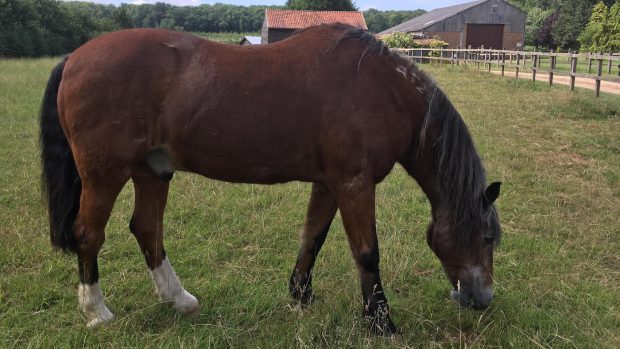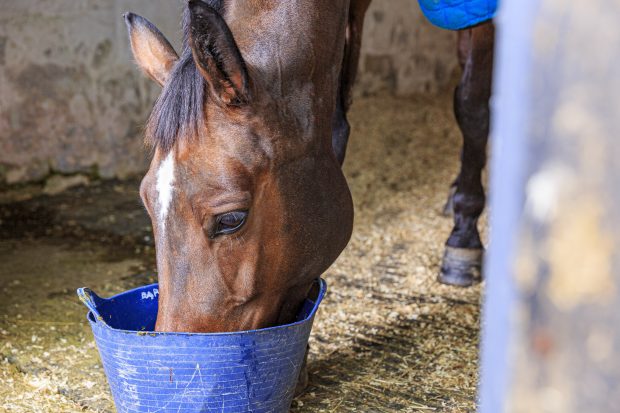Spillers’ equine nutritionist Clare Barfoot provides one H&H forum user with some helpful advice on how to feed her weak horse for better muscle development
Q: “Feeding a weak horse to support muscle development: I’m not going to say what I’m currently feeding him, because I’m interested in completely unskewed views. The horse was in very poor condition when he arrived, not thin, but so weak that he couldn’t carry a rider properly. Any underlying problems were ruled out by an experienced equine vet — he was just really really weak and has poor conformation over his back. Six months on, after a lot of remedial work, in-hand and ridden, he is looking a lot better, and working very nicely within the constraints of his conformation/musculature. He has filled out and gained muscle, but is still a bit weak, and lacking topline. He is a sharp little horse with a sense of humour, and any starch/sugar heavy feeds find their way straight to his heels! I have been feeding him a good diet in my opinion; high in protein and easy on the starch/sugar, which combined with his work, is helping him move steadily in the right direction. He is a good weight, neither fat, nor thin, and is jolly but not completely bonkers. He had a new bodyworker out the other day and she said I needed to feed him more/better, and that he needed more protein to support muscle development. I am a bit miffed, as I thought I was doing pretty well with him, and to be told I could do better was somewhat galling. So, my question is: what would you feed for muscle development, without sending the horse off its rocker on starch/sugar? ”
A: Firstly it’s important to understand the function of muscle is to provide the body with movement. How that muscle is distributed across the body is largely genetic. For example a Quarter Horse has a higher proportion of fast twitch muscles which are bulkier than an Arab which have more slow twitch muscles and this is why their appearance is quite different with well-developed gluteal (hind-quarter) muscles.
Continued below…
Related articles:
- H&H forum: find out what H&H readers suggested
- Read more information on feeding horses
- Feeding oil to help boost body condition
Other factors that can affect muscle tone and development are injury, nutrition, age and exercise. A horse that is malnourished will break down muscle in order to provide fuel for essential body processes, which is why starved horses lack muscle mass as well as fat coverage. Injury can also cause muscle wastage especially if the injury has caused a long term change in a horse’s way of going.
In addition to this, as horses age, muscle tone declines, but this is often due to a reduction in exercise intensity. Exercise itself has a major impact on muscle tone and topline as it’s the use of that muscle that helps develop its strength and function.
Unfortunately you can’t change a horse’s conformation even with a high protein diet and an intense exercise programme, genetics and conformation will always remain the limiting factor. It is also worth remembering that the nice rounded appearance we all get drawn to particularly the horse’s topline is comprised of muscle and subcutaneous fat so it’s important to assess your horse’s overall body condition score as he may just require more calories in his diet.
With regards to the influence of nutrition it’s all about providing a balanced diet with good quality protein. This means protein that meets the body’s requirement for essential amino acids supplied in the correct ratio.
A good quality compound feed fed at the recommended amount alongside quality forage should be sufficient to meet these requirements. Although, if like many horses and ponies, your horse doesn’t need the calories a compound feed provides, a balancer such as SPILLERS Original MULTI Balancer is ideal, especially if you have a horse prone to excitability. There is currently little evidence to support the feeding of high protein supplements or single amino acids on top of an already balanced diet to enhance muscle or topline development.
For more information on Body Condition Scoring and managing weight call the SPILLERS Care-Line on 01908 226626.





